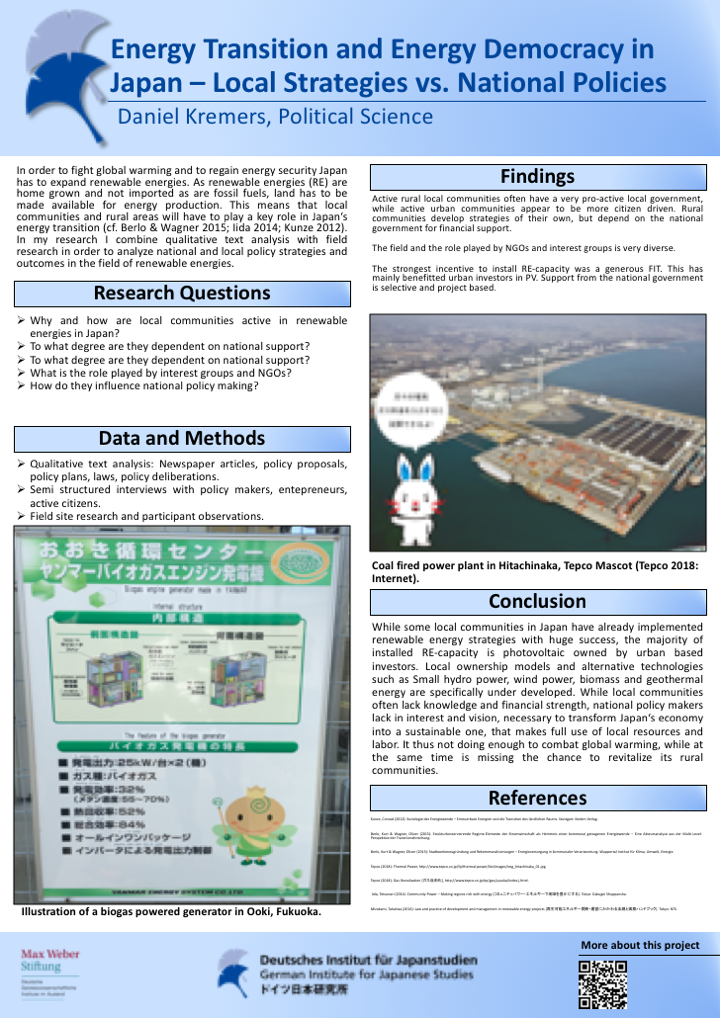Research Overview
Energy Transition and Energy Democracy in Japan – Local Strategies vs. National Policies:

English, PDF (2,2 MB)
Energy Transition and Energy Democracy in Japan – Local Strategies vs. National Policies
February 2015 - January 2020
In order to fight global warming and to regain energy security Japan has to expand renewable energies. As renewable energies (RE) are home grown and not imported as are fossil fuels, land has to be made available for energy production. This means that local communities and rural areas will have to play a key role in Japan‘s energy transition (Berlo & Wagner 2015; Iida 2014; Kunze 2012). In my research I combine qualitative text analysis with field research in order to analyze national and local policy strategies and outcomes in the field of renewable energies.
Research Questions
- Why and how are local communities active in renewable energies in Japan?
- To what degree are they dependent on national support?
- What is the role played by interest groups and NGOs?
- How do they influence national policy making?
Data and Methods
- Qualitative text analysis: Newspaper articles, policy proposals, policy plans, laws, policy deliberations
- Semi structured interviews with policy makers, entepreneurs, active citizens
- Field site research and participant observations
Findings
Active rural communities often have a very pro-active local government, while active urban communities appear to be more citizen driven. Rural communities develop strategies of their own, but depend on the national government for financial support. The field and the role played by NGOs and interest groups is very diverse. The strongest incentive to install RE-capacity was a generous feed in tariff (FIT). This has mainly benefitted urban investors in photovoltaic (PV). Support from the national government is selective and project based.Conclusion
While some local communities in Japan have already implemented renewable energy strategies with huge success, the majority of installed RE-capacity is PV owned by urban-based investors. Local ownership models and alternative technologies such as small hydro power, wind power, biomass and geothermal energy are particularly underdeveloped. While local communities often lack knowledge and financial strength, national policymakers lack interest and vision necessary to transform Japan‘s economy into a sustainable one that makes full use of local resources and labor. National policymakers are thus not doing enough to combat global warming, while at the same time they are missing the chance to revitalize Japan’s rural communities.Recent Publications
Kremers, Daniel (2020). Local renewables: Japan’s energy transformation and its potential for the remaking of rural communities. LINK
Team
 Daniel Kremers (until June 2020)
Daniel Kremers (until June 2020)
Japanese Studies, Political Science